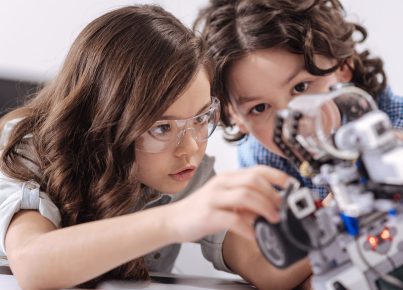Creative thinking is a crucial skill for children as it encourages innovation and problem-solving. Developing this skillset from an early age can lead to a lifetime of benefits, from academic success to effective coping strategies in everyday challenges. Below are some activities parents and educators can introduce to help kids develop their creative thinking skills.
1. Brainstorming Sessions: Encourage children to brainstorm ideas for a particular situation or problem. There is no bad idea during brainstorming; this freedom allows children to think outside the box and understand that creativity is about exploring all possibilities.
2. Storytelling Games: Invite children to create their stories, possibly with prompts such as picture cards or opening sentences. This activity helps them understand narrative structures and lets their imaginations run wild.
3. Art Projects: Art offers a visual platform for children to express their creativity. Whether it’s painting, sculpting, or drawing, art projects allow kids to visualize their ideas and bring them to life.
4. Building Blocks Play: Using building blocks like LEGOs, kids are able to construct physically what they imagine in their minds, which is excellent for spatial awareness and creative problem-solving.
5. Role-Playing Activities: Role-playing various scenarios allows children to experiment with different perspectives and come up with creative solutions on the fly.
6. Open-Ended Toys: Provide toys that have no predetermined use; items like clay, playdough, or even simple household objects can be used in myriad ways that spark creativity.
7. Exploratory Learning: Foster an environment where kids are encouraged to ask questions and explore how things work. This could involve science experiments or nature walks where they engage with the world around them.
8. Mind Mapping: Introduce the concept of mind mapping when facing complicated subjects. It’s a visual tool that helps break down big ideas into smaller, manageable parts, fostering an organized approach to creative thinking.
9. Improvisation Games: Improv games enhance quick-thinking skills and encourage kids to come up with spontaneous ideas, boosting confidence in their creative abilities.
10. Encouraging Curiosity: Always respond positively to kids’ curious ponderings—even if you don’t have the answer—and help them find out more about their curiosities.
By engaging in these activities regularly, kids develop the confidence that nothing restricts their thought process which is essential for fostering a lifetime of creativity and innovation.





